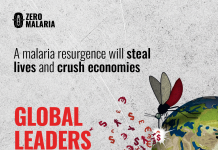By Job Okoth
Kenya’s Prof. Lukoye Atwoli, Dean of the Aga Khan University Medical College, East Africa, has been named the International President of the 2026 World Health Summit Regional Meeting.
The announcement was made during the 2025 World Health Summit in Berlin, Germany where Prof. Atwoli received the presidential mantle from India’s Prof. Balvir Tomar.
For Africa—and Kenya in particular—this handover is more than ceremonial. It’s a declaration that the continent’s voice in global health is no longer an afterthought but a guiding force.
The symbolic passing of the baton from New Delhi to Nairobi marks the first time the summit’s international presidency has moved to Africa. It’s a powerful shift in global health leadership that recognizes the innovation, resilience, and vision that African institutions have built over the years.
Prof. Atwoli, a psychiatrist and health leader with a career spanning more than two decades, takes on the role at a time when Africa’s health systems are being reshaped by research, technology, and homegrown innovation.
“As the WHS Regional Meeting baton moves from New Delhi to Nairobi, we at the Aga Khan University are honoured to convene leaders, innovators, and partners to address Africa’s health priorities,” he said. “This transition symbolizes global recognition of Africa’s role in shaping a healthier, more equitable future for all.”
The 2026 World Health Summit Regional Meeting will be hosted by the Aga Khan University in Nairobi from April 27 to 29 at the Kenyatta International Convention Centre. It will run under the theme “Reimagining Africa’s Health Systems: Innovation, Integration, and Interdependence.”
More than 2,000 global health leaders, policymakers, and researchers are expected to attend, exploring African-led solutions to challenges such as non-communicable diseases, sustainable health financing, and the role of AI and digital health in care delivery.
For many observers, the decision to host the next summit in Nairobi reflects a major turning point for Africa’s role in global health. It also highlights Kenya’s growing reputation as a hub for science and innovation. With institutions such as the Kenya Medical Research Institute, the University of Nairobi, and the Aga Khan University leading groundbreaking work—from vaccine development to mental health research—Kenya is increasingly seen as a center of excellence in the region.
The handover ceremony in Berlin carried a strong message of unity and collaboration. Representatives from different institutions emphasized that tackling modern health challenges—pandemics, climate-related diseases, and funding gaps—demands shared effort and inclusive dialogue. For Prof. Atwoli, that spirit of partnership is central to his vision. “Africa faces unique health challenges but also holds unique solutions. We must redefine health systems to work for us—systems that are resilient, innovative, and inclusive,” he said.
Beyond the ceremony, this presidency marks a deeper change in how the world perceives Africa’s role in science and health diplomacy. It reflects growing confidence in African researchers and institutions, many of which demonstrated remarkable leadership during crises like COVID-19 and Ebola. It also ties into a broader continental push toward evidence-based policymaking and digital health innovation.
For the Aga Khan University, which has campuses across East Africa, South Asia, and the UK, hosting the WHS Regional Meeting cements its position as a bridge between continents and a driver of global collaboration. The Nairobi meeting will spotlight African innovation while drawing international partnerships that could shape the next decade of health development.
As preparations for the 2026 summit build momentum, expectations are high that Nairobi will set the tone for a new era of global health leadership—one driven by equity, creativity, and shared purpose. The focus is no longer on what Africa lacks but on what it brings to the table: resilience, innovation, and a deep understanding of community-centered healthcare.
In Prof. Atwoli’s words, this moment is about Africa telling its own story through science and action. When the world gathers in Nairobi next April, it won’t just be another conference. It will be history unfolding—with Africa leading from the front.







